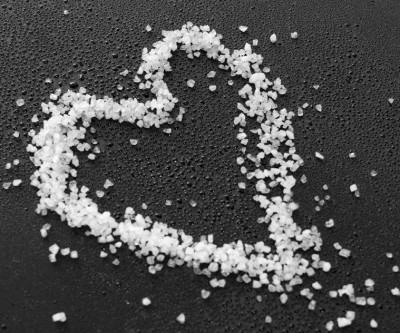Salt Institute: Scrap ‘arbitrary’ and ‘capricious’ sodium targets now

In an open letter to agriculture secretary Tom Vilsack and Department of Health and Human Services secretary Kathleen Sebelius, Salt Institute president Lori Roman said the US Department of Agriculture (USDA) had displayed a “complete disregard for numerous scientific studies” that challenged the prevailing hypothesis that cutting sodium – ideally to 1,500mg/day – could reduce the risk of cardiovascular disease.
She added: “We respectfully request the withdrawal of the sodium provisions, and the initiation of an open and transparent rulemaking procedure, with public hearings, to establish sodium provisions supported by current and reliable scientific and medical evidence.”
‘Complete disregard for numerous scientific studies’
The sodium targets in the 2010 Dietary Guidelines for Americans (<1,500mg for those aged 51+, African Americans, plus anyone with hypertension, diabetes, or chronic kidney disease, and< 2,300mg for everyone else) originated from a 2004 Institute of Medicine report which had made recommendations about DRIs despite acknowledging* that it lacked the data to develop RDAs for sodium, claimed Roman.
She added: “Rather than thoroughly assessing the latest scientific and medical knowledge on sodium, the agencies reached a conclusion in 2005 based on insufficient evidence [the 2004 IOM report] and then repeated the error in 2010 [when they came up with the 2010 Dietary Guidelines for Americans].”
She also pointed to a recent high-profile Cochrane review published in the American Journal of Hypertension, which concluded that “cutting down on the amount of salt has no clear benefits in terms of likelihood of dying or experiencing cardiovascular disease”.
She added: “Government bureaucrats are ignoring science that does not conform to their agenda by failing to consider the negative health impacts of sodium reduction in diets, failing to address that there is a physiological sodium appetite, and failing to address conflicting evidence on the impact of sodium on blood pressure and obesity.”
AHA stands by <1,500mg-a-day recommendation
USDA is still formulating its response to the letter, but the American Heart Association told FoodNavigator-USA that it stood by its <1,500mg/day recommendation, as outlined in a paper in its journal Circulation in January.
This concluded that “people – whether or not they have high blood pressure – [should] limit the amount of sodium consumed daily to no more than 1,500 mg”.
It added: “Two of the key metrics for ideal cardiovascular health are a blood pressure of less than 120/80 mm Hg and sodium consumption of less than 1,500 mg/day.”
Dietary Guidelines: “Virtually all Americans eat too much sodium”
According to the 2010 Dietary Guidelines, "virtually all Americans consume more sodium than they need”.
The guidelines state: “An immediate, deliberate reduction in the sodium content of foods in the marketplace is necessary to allow consumers to reduce sodium intake to less than 2,300 mg, or 1,500 mg per day [for those aged 51+, all African Americans, plus anyone with hypertension, diabetes, or chronic kidney disease] now.”
Industry has been quick to respond, with several leading US food manufacturers recently joining the National Salt Reduction Initiative (NSRI), which aims to cut salt in retail and foodservice across the US by 25% in five years.
However, recent consumer research conducted by the International Food Information Council revealed that most Americans still don’t know how much sodium they should eat, or how much they actually do eat. A surprisingly high number (59%) also claimed to be unconcerned about their sodium intake.
* Roman highlights a section of the IOM report that reads: “Because of insufficient data from dose-response trials, an Estimated Average Requirement (EAR) [for sodium] could not be established, and thus a Recommended Dietary Allowance could not be derived. Hence, an Adequate Intake (AI) is provided.”
Click here to read the IOM report from 2004 in full.









